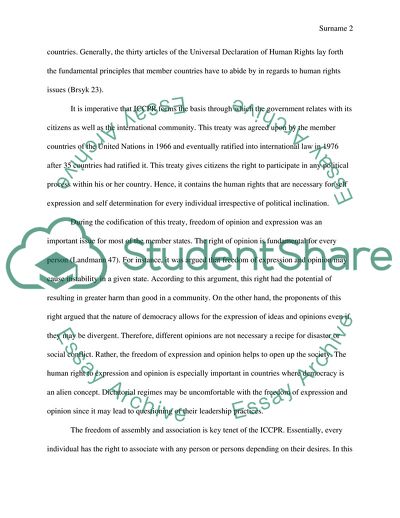Cite this document
(Human Rights: The International Covenant on Civil and Political Rights Term Paper - 2, n.d.)
Human Rights: The International Covenant on Civil and Political Rights Term Paper - 2. https://studentshare.org/politics/1797699-human-rights
Human Rights: The International Covenant on Civil and Political Rights Term Paper - 2. https://studentshare.org/politics/1797699-human-rights
(Human Rights: The International Covenant on Civil and Political Rights Term Paper - 2)
Human Rights: The International Covenant on Civil and Political Rights Term Paper - 2. https://studentshare.org/politics/1797699-human-rights.
Human Rights: The International Covenant on Civil and Political Rights Term Paper - 2. https://studentshare.org/politics/1797699-human-rights.
“Human Rights: The International Covenant on Civil and Political Rights Term Paper - 2”. https://studentshare.org/politics/1797699-human-rights.


